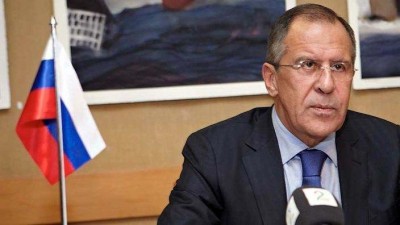Moscow, Dec 8 : Russia is seeking a prompt and urgent solution to resolve the humanitarian issues in the conflict-ridden Nagorno-Karabakh region as soon as possible, Russian Foreign Minister Sergei Lavrov said.
“Progress has been made with regard to the exchange of prisoners and bodies of those killed, as well as in relation to the search of missing persons,” Xinhua news agency quoted Lavrov as saying on Monday at a press conference following talks with the newly-appointed Armenian Foreign Minister Ara Ayvazyan.
“We are interested in seeing these acute humanitarian issues resolved as soon as possible. We have outlined a number of steps in this direction,” he added.
Lavrov stressed that the ongoing ceasefire in Nagorno-Karabakh is being observed by both parties for almost a month and an ongoing return of refugees is currently taking place.
He also proposed to set up a humanitarian response centre in the region by engaging Armenia and Azerbaijan in its work, further stating that negotiations on this topic are currently underway.
Azerbaijani President Ilham Aliyev, Armenian Prime Minister Nikol Pashinyan and Russian President Vladimir Putin issued a joint statement on November 9, agreeing to a complete ceasefire in Nagorno-Karabakh.
The agreement led to the deployment of thousands of Russian peacekeepers to the enclave and border regions, after six weeks of escalating conflict over Nagorno-Karabkh, which reportedly left thousands dead and more displaced.
This is the fourth ceasefire since last month.
The three other ceasefires — two brokered by Russia (October 10, 17) and one by the US (October 26) — collapsed after Armenia and Azerbaijan traded accusations and attacks.
A new round of armed conflict broke out on September 27 along the contact line of the disputed Nagorno-Karabakh region, which is internationally recognized as part of Azerbaijan but mostly governed by the Republic of Artsakh, a de facto independent state with an Armenian ethnic majority.
The area experienced flare-ups of violence in the summer of 2014, April 2016 and in July this year.
Armenia and Azerbaijan went to war over the region in 1988-94, eventually declaring a ceasefire.
However, a settlement was never reached.
Disclaimer: This story is auto-generated from IANS service.

